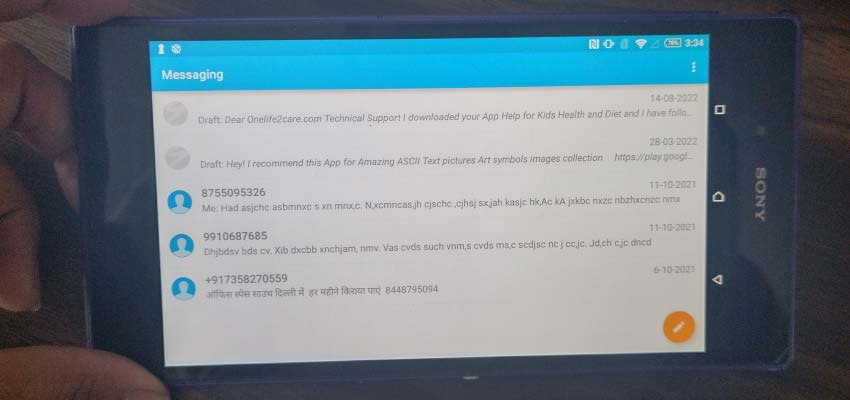Table of Contents
Bulk SMS is a form of SMS marketing that allows businesses to send large numbers of text messages to a target audience. The term "bulk" refers to the ability to send a high volume of messages at once, making it an efficient and cost-effective method of communication.
Bulk SMS is widely used by businesses for a variety of purposes, including marketing, customer engagement, and internal communications. It is particularly popular in industries such as retail, healthcare, hospitality, and transportation, where there is a need to communicate with customers and employees in real-time.
The process of sending bulk SMS messages is relatively straightforward. First, the business must obtain a list of mobile phone numbers for the target audience. This can be done by collecting numbers from existing customers, purchasing a list from a third-party provider, or using an opt-in system where customers voluntarily provide their phone numbers.
Once the list of phone numbers has been compiled, the business can use a bulk SMS service provider to send the messages. The service provider will typically offer a web-based platform that allows the business to create and send messages, as well as track the results of the campaign. The message can be personalized with the recipient's name, and may include a call to action, such as a link to a website or an offer code.
There are several benefits to using bulk SMS for marketing and communication purposes. Firstly, it is a highly effective method of communication reaching a large audience in a short amount of time. SMS messages have an open rate of over 98%, which means that almost all messages are read by the recipient. This is significantly higher than the open rate for email marketing, which is typically around 20%.

Sending an SMS message is much cheaper than making a phone call, and bulk SMS service providers typically offer pricing plans that are tailored to the volume of messages being sent.
Bulk SMS can also be highly targeted, as businesses can choose to send messages to specific segments of their audience. For example, a retailer could send a message to customers who have previously made a purchase, or to customers who have not visited the store in a certain amount of time.
However, there are also some potential drawbacks to using bulk SMS. For example, there is a risk of message fatigue, where recipients may become annoyed by the volume of messages being sent. This can be mitigated by ensuring that the messages are relevant, personalized, and not sent too frequently.
Additionally, businesses must comply with regulations related to SMS marketing, such as obtaining consent from the recipient before sending messages and providing an opt-out option. Failure to comply with these regulations can result in legal penalties and damage to the brand's reputation.
Overall, bulk SMS is a highly effective method of marketing and communication for businesses of all sizes. It is a cost-effective, targeted, and efficient way to reach a large audience in real-time, and can be used to drive customer engagement, increase sales, and improve brand loyalty. However, businesses must ensure that they comply with regulations and use best practices to ensure that their messages are well-received by the recipient.
How to send bulk sms
Sending bulk SMS is an effective way to communicate with a large audience at once. With the help of bulk SMS software and service providers, businesses can send personalized messages to their target audience. In this article, we will explain how to send bulk SMS in a few simple steps.
-
Step 1: Choose a Bulk SMS Service Provider
The first step in sending bulk SMS is to choose a reliable and efficient bulk SMS service provider. There are many bulk SMS service providers available, and it is important to choose one that offers good customer support, and affordable pricing. Before selecting a provider, it is recommended to read reviews and compare pricing and features of different providers.
-
Step 2: Create an Account
Once you have chosen a suitable bulk SMS service provider after analyzing the reviews and pricing, you will need to create an account on their platform. You will be asked to provide some basic and required details, such as your name, email address, and phone number. After creating an account successfully, you will need to verify your phone number and email address.
-
Step 3: Upload Contacts
The next step is to upload the contact list to the platform. Most bulk SMS service providers allow you to upload contacts in CSV, Excel, or TXT. It is important to ensure that the contact list is updated and accurate to avoid sending messages to invalid numbers. Additionally, it is crucial to obtain permission from contacts before sending any messages to them.
-
Step 4: Create SMS Campaign
Once you have uploaded the contact list to the platform, you can create an SMS campaign. In the campaign, you can specify the message content, the sender ID, and the delivery schedule. It is essential to keep the message short, concise, without any grammatical mistakes while also making sure it is engaging and relevant to the target audience.
-
Step 5: Preview and Send
After creating the SMS campaign, it is important to preview the message and check for any errors or mistakes. The preview function allows you to see how the message will appear to the recipient. If everything is correct, you can then send the SMS campaign to the entire contact list or to specific contacts according to your choice.
-
Step 6: Track and Analyze
After sending the SMS campaign, it is important to track and analyze its effectiveness. Most bulk SMS service providers offer analytics and reporting tools that allow you to track open rates, and conversions. These metrics will help you understand the performance of the SMS campaign and make improvements in the future.

Best Practices for Sending Bulk SMS
-
Obtain Permission:
It is important to obtain permission from the contacts before sending them any SMS messages. This can be done by asking them to opt-in to receive messages through a website, social media platform, or in-store sign-up.
-
Personalize Messages:
Personalizing the message with the recipient's name, location, or interests can increase engagement and improve the relevance of the message.
-
Keep Messages Short:
SMS messages have a limit of 160 characters, so it is important to keep the message short and to the point. The message should include a call-to-action, such as visiting a website or making a purchase.
-
Time Messages Appropriately:
Messages should be sent at an appropriate time, such as during business hours, to avoid disturbing the recipient's personal time.
-
Monitor Responses:
It is important to monitor the responses to the SMS campaign and take action accordingly. This can include following up with the customers, making changes to the campaign, or responding to any queries or complaints.